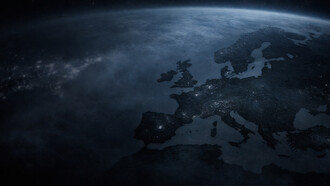U.S. President Donald Trump is the proverbial man who has everything. He is fabulously rich. He has a beautiful wife and lives in a palatial estate. He has twice won the highest office in the United States, whose highest court ruled that he can break laws without punishment. He commands the world’s largest Army and influences the largest economy.
For better or worse, he has mastered the use of presidential power in the U.S. and other countries, often ignoring the usual rules and customs. Less than a year into his second term, Trump has made universities, companies, law firms, courts, the military, Congress, and other countries bend to his wishes. They praise him to stay on his good side.
However, there is one thing President Trump does not have. He has not won the Nobel Peace Prize. He covets it. It grates on him that his archenemy, former U.S. President Barack Obama, won the Nobel, while he hasn’t.
Trump, his allies, and those who court him are actively campaigning for the Norwegian Nobel Committee to award him its prestigious prize. The gold medal would go perfectly with his lavishly gilded Oval Office. He sends the White House press secretary out to tell the news media, “It’s well past time that President Trump was awarded the Nobel Peace Prize.” She and Trump claim he has brokered peace deals around the world, averaging about one per month.
For example, Trump’s allies cite his involvement in mediating a peace agreement between the Democratic Republic of the Congo and Rwanda in June, as well as a ceasefire in May between India and Pakistan. Before he succeeded Joe Biden in the presidency last January, the two shared credit for helping broker a ceasefire between Hamas and Israel in the Gaza Strip.
But before Trump’s Nobel campaign gains much more traction, we should look more deeply at his record during his first presidency and eight months into his second. The Nobel recognizes individuals who have "done the most or the best work for fraternity between nations, for the abolition or reduction of standing armies, and for the holding and promotion of peace congresses.”
Let’s start with the examples that Trump himself cites. At this moment, violence has stopped between India and Pakistan, although tensions remain high. The conflict between the DRC and Rwanda continues. Critics suggest that Trump’s motivation in that case had a lot to do with gaining access to critical minerals in Congo. As we will see, that seems to be characteristic of Trump’s involvement in international conflicts.
Observers give a great deal of credit to Egypt and Qatar for brokering a ceasefire in Gaza. However, it broke down after 42 days, and the war goes on. The United States continues supplying Israel with lethal weapons that have helped kill over 60,000 people and wounded nearly 154,000 others in the Gaza Strip.
Last November, the International Criminal Court issued an arrest warrant for Israeli Prime Minister Benjamin Netanyahu, charging him with using “starvation as a method of warfare and the crimes against humanity of murder, persecution, and other inhumane acts.” But Trump has not used access to U.S. weapons as leverage to change Israel’s tactics. The arms trafficking continues, and Trump has entertained Netanyahu at the White House and his Mar-a-Lago resort in Florida.
In February, during a press conference with Netanyahu, Trump proposed that the United States take over Gaza, displace the 2 million Palestinians there, and build a resort there. He called it the “Riviera of the Middle East.” Trump owns five golf courses; Gaza would become his sixth. “This could be so significant,” the president said. Netanyahu responded that it would be “worthwhile really pursuing this idea.” Meanwhile, the brutal war in Gaza continues.
Now, Trump has positioned himself as the broker who can mediate a peace deal between Russia and Ukraine. While running for president in 2016, he assured U.S. voters that if he were president, Russian President Vladimir Putin would not invade Ukraine. “OK, just so you understand. He’s not going into Ukraine, all right? You can mark it down,” Trump said. “You can put it down. You can take it anywhere you want.” A news reporter reminded him that Putin had already taken Crimea. “Okay, well, he’s there in a certain way,” Trump admitted. He blamed it on Obama.
Trump lost the election, and Russia invaded Ukraine in February 2022 during the Biden presidency. In 2023 and 2024, while competing to return to the White House, Trump bragged more than 50 times that if he were reelected, he would end the war within 24 hours. He won the election, but not the peace.
Now, Trump is trying to get Putin and Ukraine President Volodymyr Zelensky to agree on a deal, although EU countries have the most to lose from Putin’s expansionist plans in the region. Unfortunately, despite his self-promotion as a master dealmaker, Trump has gained a reputation for frequently changing his mind depending on who he has just spoken to. He makes public concessions to Putin without consulting with Zelensky or European leaders. He repeatedly sets deadlines for Russia to agree to a ceasefire but takes no action when they pass without being met.
His performance has reignited questions about his long and mysterious relationship with Putin. Trump praises him as a “strong leader.” As though emulating the Russian leader’s expansionist plans, Trump suggests the U.S. should take over Greenland, Canada, and the Panama Canal.
Earlier this year, Trump blamed Ukraine for starting the war. He hosted Zelensky at the White House, belittled him on national television, and sent him home. He discontinued U.S. military aid to Ukraine, apparently to pressure the country into conceding to some of Putin’s demands. Although the International Criminal Court has issued a warrant for Putin’s arrest on charges of war crimes, including kidnapping Ukrainian children and shipping them to Russia, Trump literally rolled out the red carpet for Putin in August for a bilateral meeting in Alaska. Trump greeted the Russian president warmly, walked him past some secret American aircraft, and gave him a ride in the presidential limousine.
After their meeting, Trump abandoned the idea of a ceasefire and sided with Putin’s position that Ukraine must cede territory to Russia. As Putin left U.S. airspace, Russia continued fierce bombing of civilians in Ukraine, proving that the Alaska summit achieved nothing.
Days later, Zelensky and European leaders held a hastily arranged meeting with Trump in the White House. There was no red carpet for Zelensky when he arrived.
Meanwhile, Trump is using the war to generate business for U.S. arms manufacturers by selling weapons to Europe for it to send to Ukraine. In exchange for U.S. assistance, Trump demanded access to Ukraine’s valuable mineral deposits. It was the second time that Trump attempted to extort Zelensky.
In 2019, Trump attempted to withhold military aid to Ukraine unless Zelensky found damaging information on Biden, Trump’s likely opponent in the 2020 election. Zelensky didn’t cooperate with this extortion. However, asking a foreign government to interfere with an election is against the law in the United States, so Congress impeached Trump. But this time, with the war entering its third brutal year, Zelensky had to agree to Trump’s deal.
Trump’s record shows that he creates the conditions for conflicts more than he helps resolve them. He pulled the United States out of the Paris Climate Agreement; the World Health Organization (WHO); the UN Human Rights Council, the United Nations Educational, Scientific, and Cultural Organization (UNESCO); and three agreements to limit nuclear weapons proliferation: the Iran nuclear deal, the Open Skies Treaty, and the Intermediate-Range Nuclear Forces Treaty (INF). He has killed important foreign aid programs, including the U.S. Agency for International Development (USAID). A study in the respected medical journal The Lancet credited USAID with saving 90 million lives worldwide over the last two decades. The study predicted that the loss of the agency will result in 14 million unnecessary deaths by 2030.
Under Trump’s leadership, the U.S. voted against the Global Compact on Refugees and cut or discontinued America’s contributions to vital United Nations programs, including its Population Fund, relief effort for Palestinian refugees, UNICEF, the Development Program, Environment Program, Office for the Coordination of Humanitarian Affairs, and Victims of Torture. He imposed sanctions on the International Criminal Court. The United States is now in arrears by $1.5 billion for the UN’s regular budget – the highest debt of any nation- and $1.3 billion for the UN peacekeeping budget.
These cutbacks and withdrawals by the world’s largest economy undermine global economic, social, and physical stability. The threat is particularly acute in the context of global climate change. The United States is second only to China in global-warming pollution. Trump has not only withdrawn from the Paris Accord; he has also halted the U.S. government’s work on clean energy and climate science, while encouraging America’s oil and gas industry to produce more of the fuels contributing to climate change. His actions threaten the international effort to get climate change under control.
Finally, we should hope that good character is a factor in the Nobel committee’s decision. Trump, impeached by Congress twice and convicted of 34 felonies, would be disqualified by this standard. He has been found liable for sexual crimes and faced numerous accusations. He was indicted for crimes ranging from misuse of documents to election interference, but escaped trial by winning the presidency. Now, he continues to break U.S. laws and his oath to abide by the Constitution.
Nevertheless, several foreign and domestic dignitaries have sought to curry favor with Trump, or at least avoid his wrath, by nominating him for the Nobel. The list includes several authoritarians, military juntas, and leaders facing international arrest warrants.
Junaid S. Ahmad, a member of the International Movement for a Just World, characterized the situation correctly in the Middle East Monitor:
“There are moments in world affairs so brazen, so jaw-droppingly cynical, that satire simply gives up and goes home,” he wrote. “One such moment has arrived: the unlikeliest of duos—Benjamin Netanyahu of Israel and Pakistan’s General Asim Munir—have found common cause in nominating Donald J. Trump for the Nobel Peace Prize. That’s right. A warmonger-in-chief being heralded by a military autocrat and a genocidal demagogue as the global symbol of peace. George Orwell, meet your latest footnote.
“But let’s not be misled by the absurdity...It’s a political ritual of allegiance, where power is flattered, imperialism is decorated, and peace is contorted into a mockery of itself. That Netanyahu and Munir are Trump’s cheerleaders for this grotesque honor tells us everything we need to know about the rotting soul of contemporary global politics.”
The Nobel Peace Prize has not escaped controversy during its history. It has been criticized for some of its choices and accused of political motivations. Some of its recipients have later violated the spirit of their awards. But like the gold in its medal, the Nobel has retained its exceptional value. Now, Trump and his allies are likely to continue pressuring the Norwegian Nobel Committee. It could get rough. Besides shameless self-promotion, Trump is known for bombast, bullying, and punishing those who disappoint him. But if the committee gives in, it will forever tarnish and cheapen one of the world’s most coveted honors.
It seems obvious that Trump does not belong in the group of over 100 individuals, including four U.S. presidents, who have received the Prize so far. His peacemaking efforts are performative rather than sincere. Perhaps some good will come from them, but his record suggests that Trump cares more about winning the prize than winning the peace.















